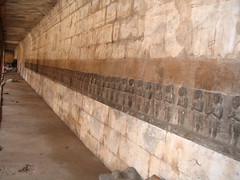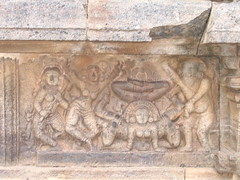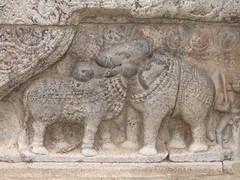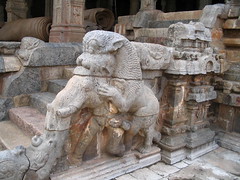I have a bruise on my upper thigh the size of a five rupee coin. The strange thing is that I can’t remember at all, how it could have got there. As far as I can recall, no one hurt me or pushed me into a corner where I would hurt myself. No one bit me. I didn’t stumble, and I didn’t wake up from bed to find myself lying on the floor. Although I’ve done that once before.
This bruise looks like something a big cat left behind with its paws, minus the blood and the everything spilling out bit. More like a gentle scratch perhaps. There are five distinct marks, each the precise red of dried petals left in between the pages of an old notebook. If they were any redder, I would mistake them for blood, even though I can’t feel any pain.
People are fond of comparing the mind to a sieve. If that holds, then I must have one with an extra coarse mesh, the kind which is always letting the stones drop out with the flour. When I find the time, I plan to go in to the nearest departmental store and order myself something different. Extra fine, please, I will walk in to the counter and say. Or make it more fancy, I will tell the man standing there, Extra fine and Supergrip, plus a ten rupee worth of add-on features, what do you call them, those dust-sensors to keep out those unwanted bits and pieces of memory, old mould stuck in the mind.
Until then, I will wait, for someone, for something, to give me the keys to the missing parts of myself.
This bruise looks like something a big cat left behind with its paws, minus the blood and the everything spilling out bit. More like a gentle scratch perhaps. There are five distinct marks, each the precise red of dried petals left in between the pages of an old notebook. If they were any redder, I would mistake them for blood, even though I can’t feel any pain.
People are fond of comparing the mind to a sieve. If that holds, then I must have one with an extra coarse mesh, the kind which is always letting the stones drop out with the flour. When I find the time, I plan to go in to the nearest departmental store and order myself something different. Extra fine, please, I will walk in to the counter and say. Or make it more fancy, I will tell the man standing there, Extra fine and Supergrip, plus a ten rupee worth of add-on features, what do you call them, those dust-sensors to keep out those unwanted bits and pieces of memory, old mould stuck in the mind.
Until then, I will wait, for someone, for something, to give me the keys to the missing parts of myself.





